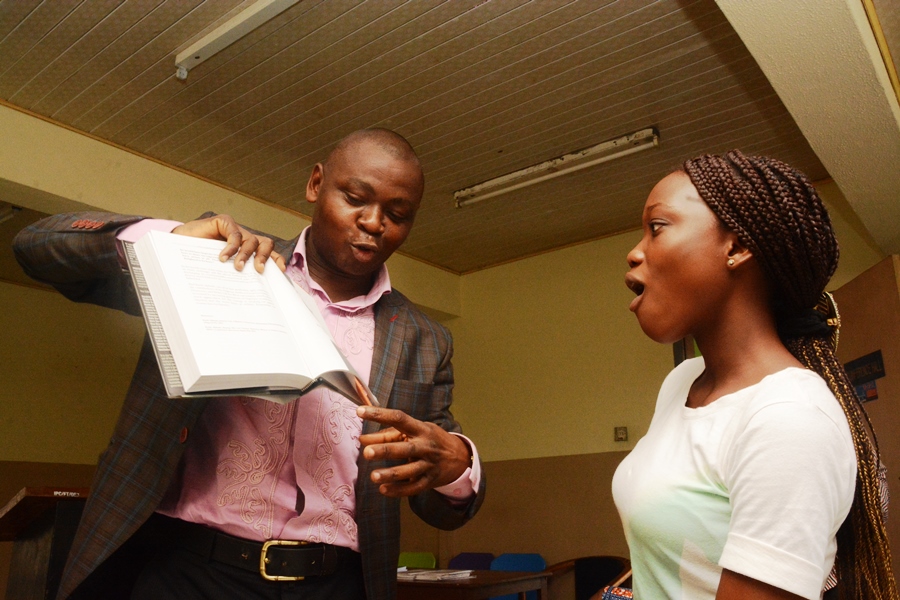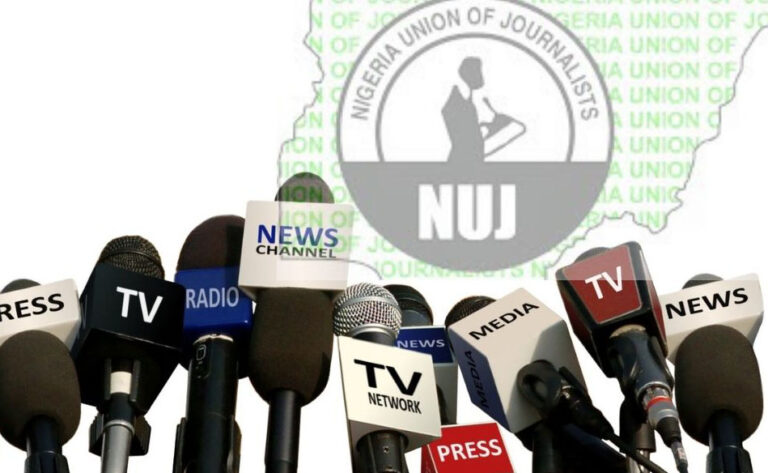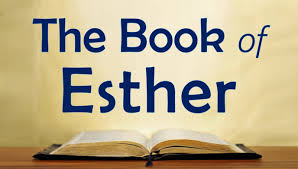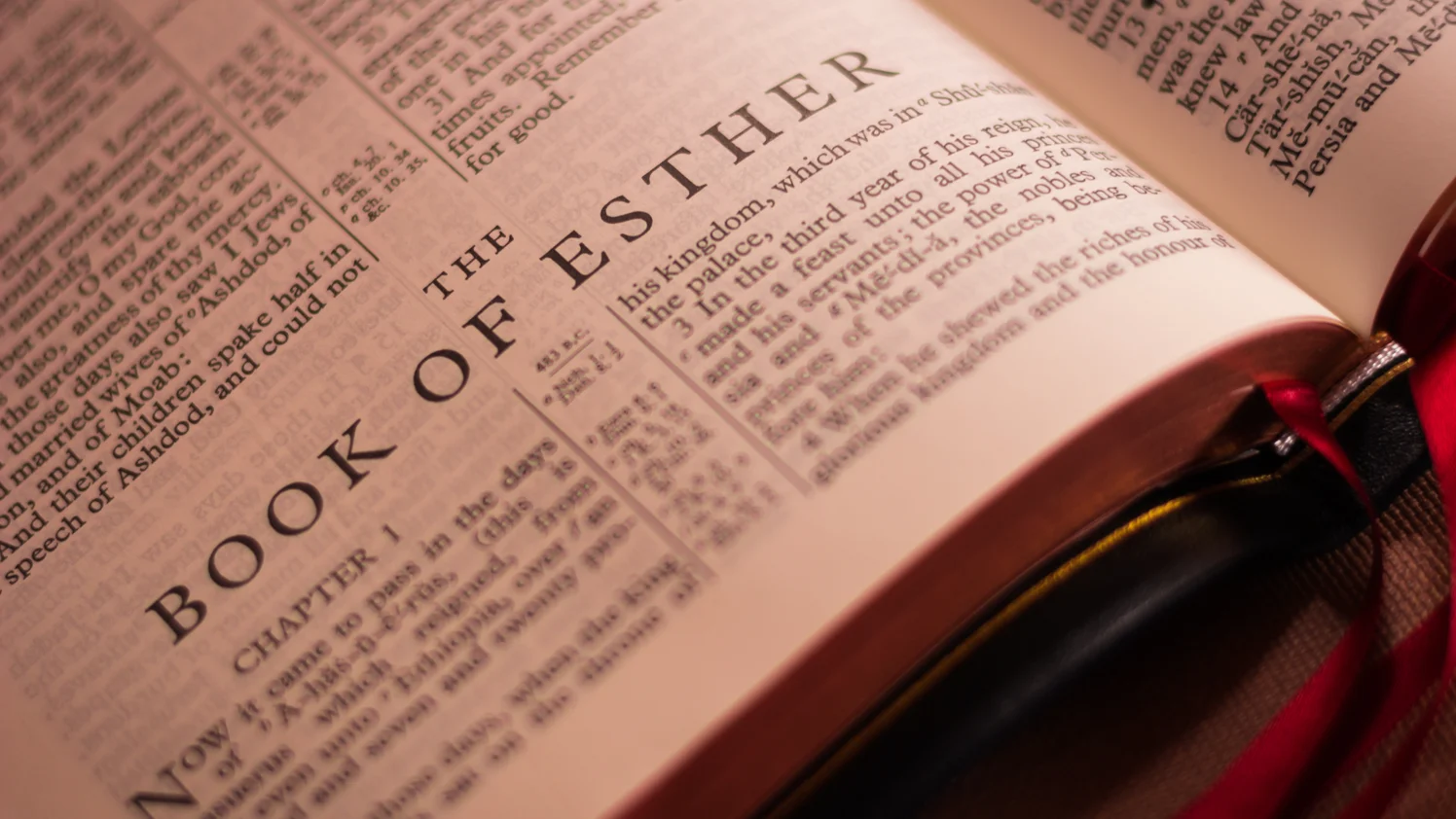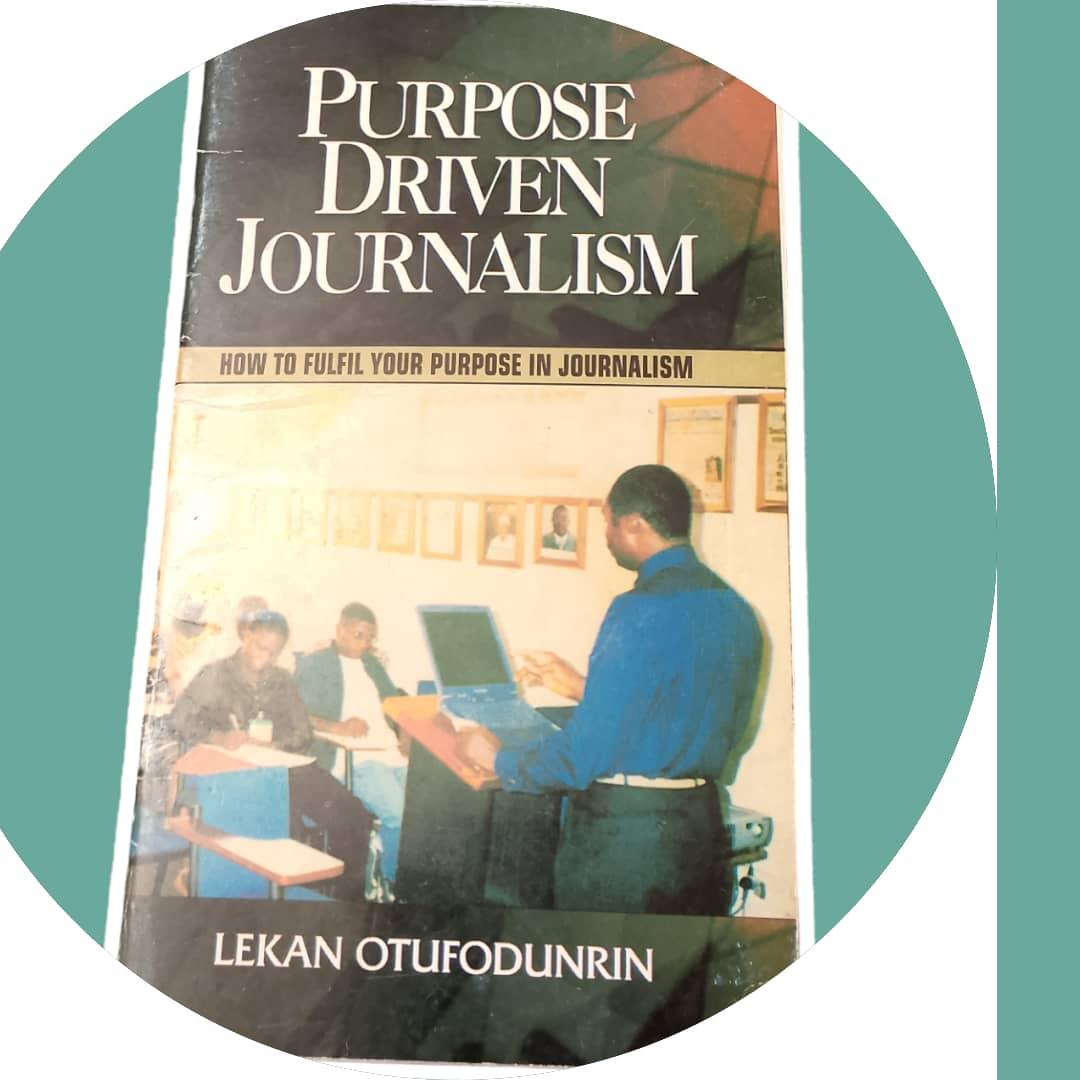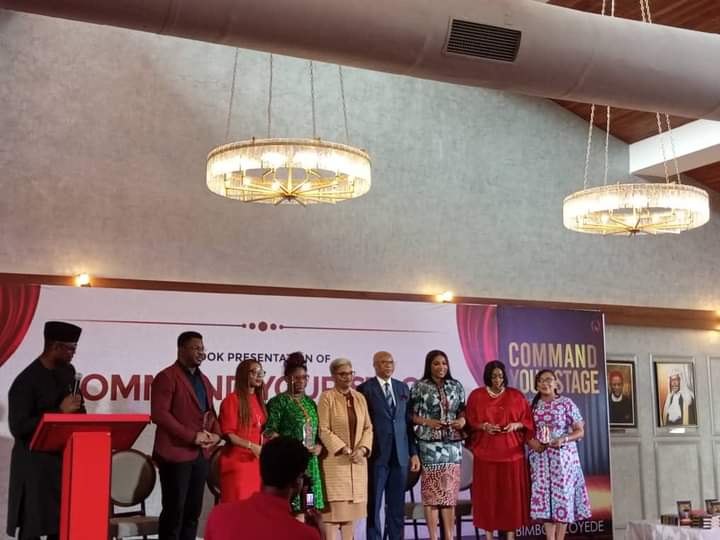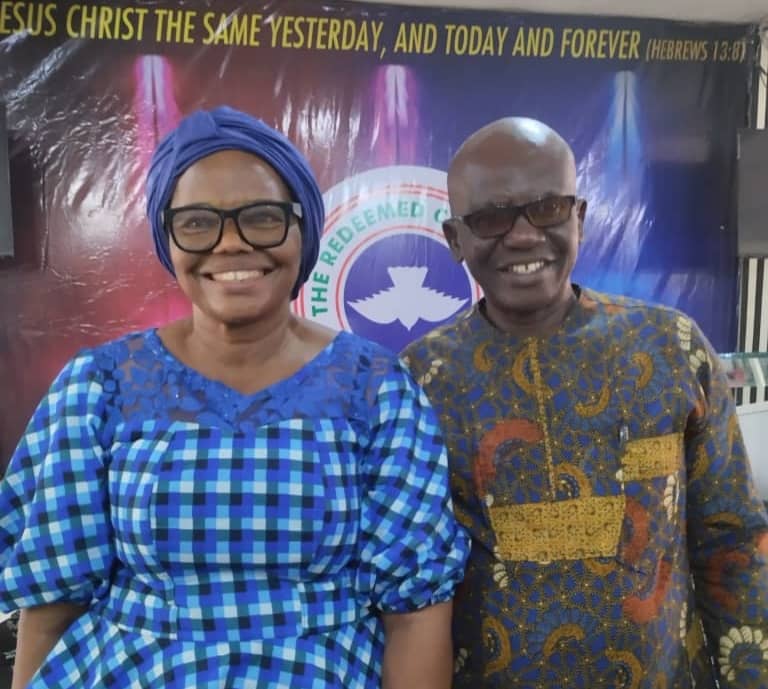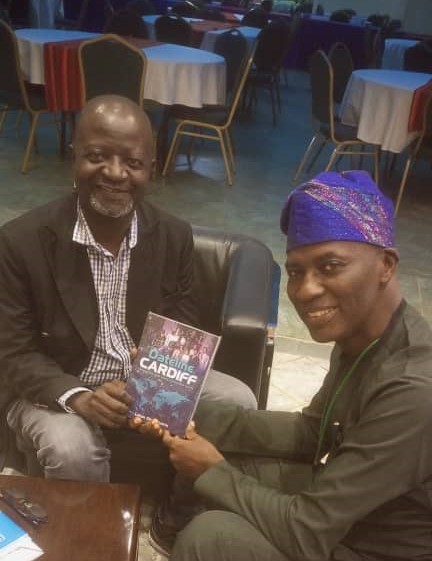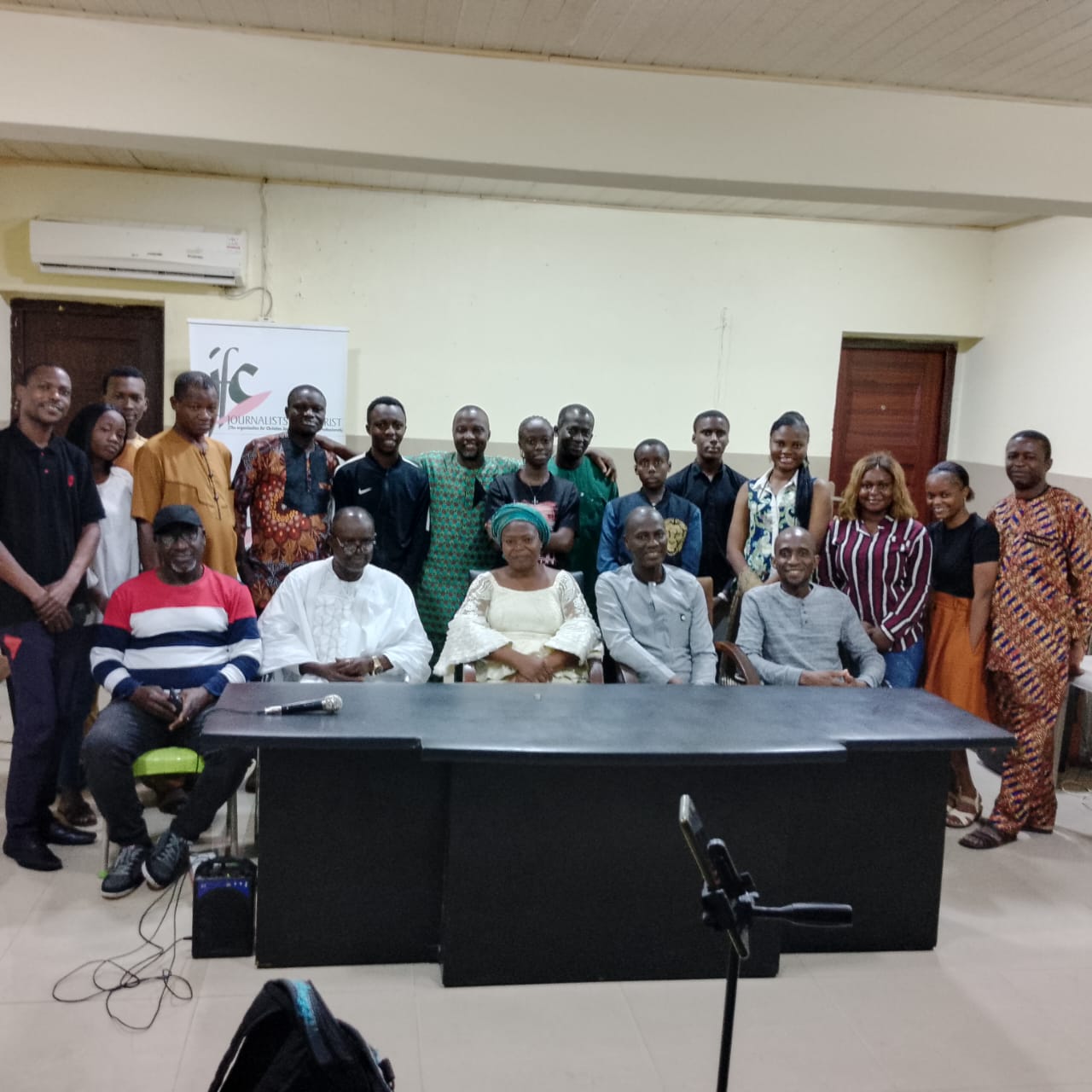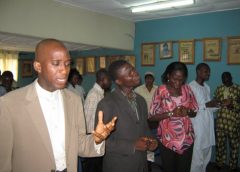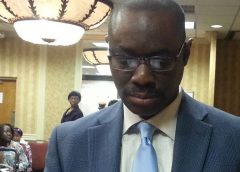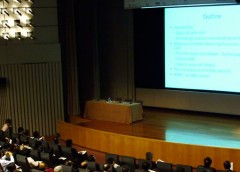
Paper presented on behalf of Director of World Journalism Institute, New York , Robert Case II at the Journalists for Christ, Nigeria reception for Belz International Media fellows in Lagos on August 21, 2010
While there has always been the cosmic struggle between truth and falsehood, between good and evil, between the best laid plans of man (e.g., tower of Babel) and the plans of God). this conflict has been intensified into an outright cultural war in our post-modern, post Christian age by the mass or mainstream media in the last 50 years. It has argued (Carl Henry), “never in the past have the role of words and the nature of truth been as misty and undefined as now”. In previous ages, concepts of truth communicated through words was the accepted medium of human exchange. Today, however, the nature of truth and the role of words are in dispute. We are witnessing a massive breakdown of confidence in verbal communication. Marshall McLuhan is right; words have become obsolescent. In our post-modern world, language is used not to reveal and enlighten, but to conceal, deceive, and obfuscate. Symbols and images are more important than words. For the Christian journalist this shift has extraordinary consequences.
When the notion flourishes that words are not to be trusted as carriers of the truth and reality, definitions, by their very nature, are allowed to run wild. Christianity, because it is a religion of verbal revelation and expression, suffers more than do other worldviews. And journalism, because it is the craft of journaling using language, suffers more than other callings. Christianity centers purely in the living God, self disclosed in his infallible Word, communicated intelligibly in meaningful sentences to aptly equipped human minds. The claims of Jesus to be, to know, and to proclaim the truth is nonsense if words are inherently distortive and deceptive (John 14:10; 8:47; 10:35). The task of the journalist who is a Christian must be on the front line of words as carriers of truth. The Scriptures require Christians to shoulder the responsibility for verbal expression which is verifiably true (Matt. 28:18-19; Rom. 10: 14-15; Acts 17; 18:4, 12, 18, 28; 19:8-9; etc.).
If Marshall McLuhan is right and “the medium is the message,” and if absolute truth has been lost in the market place of ideas (as I am arguing), then obviously the final import of each and every word vanishes as well. We will be left with only a multiplicity of latest words (Acts 17:21) which tickle our ears, none of them fixed and final. So an elite cadre of cultural gatekeepers and intellectuals able to manipulate words who are devoted to novelty and a personal addenda soon breeds an entire generation “ever learning and never able to come to knowledge of the truth” (2 Tim. 3:7). When truth is lost, falsehood no longer exists. Everything becomes relative. Everything is true. Everything is false. Only pragmatism, which says “this is true because it gets me what I want,” remains.
Francis Schaeffer pointed out that the task of comprehending truth and reality has been profoundly complicated by the fact that words have been emptied of traditional and commonly understood meaning, and words are now marketed toward subjective and self-serving ends. In our post-modern age, words are used as weapons to advance social, economic, political and cultural agendas, not to advance truth and a correct understanding of the real state of affairs.
The fundamental issue in journalism practiced by a Christian is the issue of truth — the truth of the theological presuppositions implicit in one’s journalistic approach and content (epistemology). It has been argued (Langdon Gilkey) that the prevalent mood of today’s Western culture is “skepticism about all formulation of ultimate coherence or ultimate meaning.” This new Dark Age nihilism. (Alistair MacIntyre) surrounds us and we Christians can resist it only with self-conscience effort. As Os Guinness so succinctly puts it, “If truth is truth, then differences make a difference.”
One way for the journalist of faith to resist this cultural spiritual mindlessness is to give attention to the inflexible nature of the created moral order (metaphysics). That is, we need to remember the insistent Biblical demand that every person tell the truth and keep his word (James 5:12; Matt. 5:37). Christianity makes the binding connection of all falsehood (equivocation) with the Evil One (John 8:44). What has happened in our post-modern, post-Christian society is that our culture has largely programmed or scrubbed out of our public discourse eternal concepts like final truth and moral absolutes. The tragedy is that it was not always this way. There was a time when the major news organizations of this country reflected the truth of God’s existence without being explicitly Christian. But because we Christians abandoned the mainstream newsrooms these great cultural institutions (like newspapers) forgot about God, like all other cultural institutions. In a sense, every journalists, Christian or not, is an evangelist because every journalists reports and writes from a moral perspective (worldview).
If we Christians continue to absent ourselves from the pursuit of news in the mainstream media, then it is unlikely that any remedy can hope to succeed in stemming the wayward winds of general relativism, skepticism, and nihilism. In this journalistic reawakening, it is important that the question whether enduring (abiding) Christian concerns are granted visibility, or whether the worldview of historic Christianity is suppressed by editorial decisions. I refer to the universal Christian concerns (Ps. 33:5) as:
1) Justice and love shown towards racial and religious minorities, the poor, and the socially forgotten (James 1:27).
2) A peaceful and law abiding society pursued (1 Tim. 2:12; Rom. 13)
3) Cultural activities such as learning, commerce and subduing nature according to God’s word are embraced (Gen. 1:28)
4) Personal moral standards adhered to (Matt. 5:48; 1 John 3)
5) Family and state examined in light of God’s word (Eph. 5-6)
6) Judeo-Christian definition of human essence (anthropology) is argued (Gen. 9)
I would argue that the future of American culture and Western civilization depend on whether print and broadcast are reserved only for human speculation and transitory happenings, or whether Christian concerns are given equal time and space in the “public square” (Richard John Neuhous). Take note: I have not mentioned a word about quoting the Bible or evangelism or proselytizing. Only about the universal and abiding concerns of human life.
The fact that our self-revealing God is an abstract, non-sensory reality is not what gives Him a poor press — after all, ephemeral concepts such as “justice,” “love,” “human rights,” “evil,” “hate,” beauty,” “courage” (and much else that makes the news) are also non-sensory concepts. Rather, by reporting only the perverse, wicked, violent, criminal, depressing, chaotic, greedy, random, dangerous, etc. as the decisively real world, the mainstream media help foster an almost purely biased (that is, sensate) misunderstanding of reality (Prov. 13:2-3). That is, the press reports on the theological aspect of the Fall of humankind, and not the equally real aspect of the offer of redemption, thus obscuring hope. A mood of perpetual crises in the temporal socio-politico-economic sphere is nurtured by the press rather than the reality of the eternal spiritual and cosmic control of a kind and purposeful God.
This constant repetition of emotion-laden experiences, which appeals to our sentimental and romantic sinful nature, drives us to harden ourselves against personal sacrificial involvement in society. From a Christian perspective, the mass media denial of spiritual reality, their embracing of moral relativism, and their accommodation of materialist, sensate, and purposeless view of life is wrong headed, and thus destructive to the amelioration of the woes of humankind.
In this age of mass secularized media, the mission of all journalists of faith is to overcome the eclipse of God, and to provide an alternative to the dominant secular mindset in the mainstream newsroom (as well as the tepid and non-discerning Christian newsroom). To this end, the Christian journalist must offer the mainstream newsrooms an alternative at the frontiers of gathering news to accurately, fairly, compellingly report and write the news that is verifiable. Today’s journalist of faith echoes Samuel Cornish, the early 19th century African-American New York newspaperman (Freedoms’ Journal) and evangelical Presbyterian pastor who wrote in the first edition of his newspaper in March, 1827 that the reason for a African American perspective on the news was that he was tired of the truncated coverage of African-American affairs and that
“We wish to plead our own cause. Too long have others spoken for us. Too long has the public been decided by misrepresentations, in things which concern us dearly.”
The journalist who is a Christian can add to the current journalism culture in its appreciation of the existence of another worldview – The historic Christian worldview. To accomplish this remarkable task, the journalist must be epistemologically self-conscious about his/her faith. The journalist of faith may be called to “stand in the gap” (Ezekiel 22:30) and to be “watchman” for our society.
God’s providential fingerprints and footprints are on everything that exists. Therefore, everything is theological. God looks and sees and says, “It’s all mine.” And that is comforting to us, for the godless alternative is unthinkable. The crisis in our culture is more theological than political or economic. Every journalist is, by the act of reporting and writing, a theologian in that some worldview is being expressed in the story. So we Christians should, at the very least, be aware of where our ideas originate.
